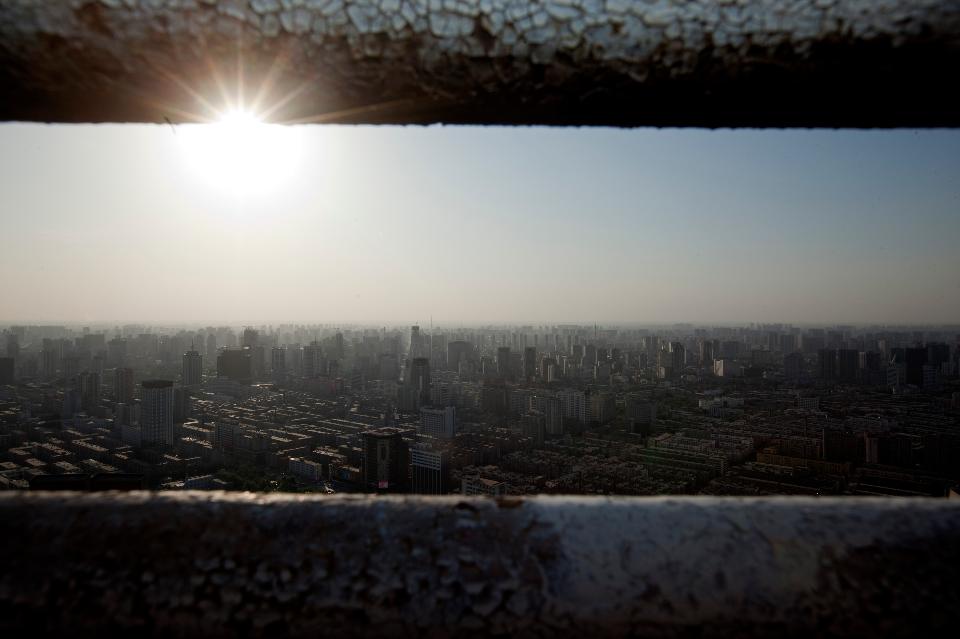Media Report

- The Financial Times reports: "Sceptics about China's economic statistics have taken a special pleasure in revelations of fake data in the north-eastern province of Liaoning dating at least to 2011. Along with an officially reported contraction in its economy last year, they have given the impression that Liaoning's economy is unusually troubled. That impression may be unfair to Liaoning...Last week, even president Xi Jinping weighed in on Liaoning's data-faking, telling the province's delegation to China's annual legislative meeting that 'the practice must be stopped'...The FT examined four provinces that are more reliant than Liaoning on the coal, steel and oil industries. Shanxi, Shaanxi and Inner Mongolia comprise China's coal heartland; Liaoning and Hebei together account for almost one-third of China's steel output. In regions where resources or steel dominate, the commodity cycle is more extreme. Booms inflate the service sector, consumer spending and property prices; busts have an outsized effect on employment and government finances. 'China has a rust belt just like the US or UK,' says Andy Rothman, investment strategist at Matthews Asia."
- Reuters reports: "Within earshot of mortar fire echoing from beyond a ring of hills, a sprawling relief camp in Southwestern China is swelling steadily after fighting erupted last week between a rebel ethnic army in Myanmar and government troops just across the border. In a recent Reuters visit to the rugged area in southwestern Yunnan province, aid workers and those displaced expressed fears of a more violent and protracted conflict than a previous flare-up in the Kokang region in early 2015. 'Every day, more people come,' said Li Yinzhong, an aid manager in the camp, gesturing at the mostly Han Chinese refugees from Myanmar's Kokang region trudging through the reddish mud earth around rows of large blue huts where they sleep on nylon tarpaulin sheets. 'We will look after them until they decide they want to go back.'... On the Chinese side, paramilitary police have sent in battalions of reinforcements, mostly in readiness for disaster relief, according to Chinese officials who spoke on background...China has lodged 'solemn representations' with Myanmar over its citizens put at risk by the conflict, foreign ministry spokeswoman Hua Chunying told a regular news briefing on Monday. 'The Chinese will be very angry if it escalates to the level of 2015,' said Sino-Myanmar expert Yun Sun, a senior associate with the Stimson Center in Washington D.C."
- The Hill comments: "At a time when the post of ambassador-at-large for international religious freedom remains vacant, Congress has an especially important role to play in advocating for religious freedom around the world. Religious believers in China are particularly in need of dedicated congressional attention. Religious believers in China are particularly in need of dedicated congressional attention. China's authoritarian regime oversees a massive apparatus for controlling religious practice and belief. Basic spiritual activities that are practiced freely in most countries — from praying with one's children to observing important holidays and rituals — are restricted and can be harshly punished in China. On an almost daily basis, injuries are suffered, families are shattered and lives are lost...This reality presents an urgent and unique opportunity for the U.S. government and Congress to take actions that can protect Chinese believers and expand the space for their practice. But the complexity of conditions in China, the varied treatment meted out to different groups, and the need for both top-down and bottom-up pressures call for a multipronged strategy."
Calendar
- 2017-03-12 Schwarzman Sees Donald Trump Dialing Back Criticisms of China
- 2017-03-10 Park’s Ouster Raises Prospect of Reset With China, Kim Jong Un
- 2017-03-09 How To Decode China's Reaction To U.S. THAAD Missile Deployment In South Korea
- 2017-03-08 China wants to avert ‘head-on collision’ in the Koreas, but will Trump sign on?
- 2017-03-07 China warns of ‘consequences’ over deployment of U.S. antimissile system
- 2017-03-06 North Korea tests four more missiles — and China’s patience
- 2017-03-05 China overtakes eurozone as world's biggest bank system
- 2017-03-03 China Is Running Out Of Cheap Rural Labor And It's Because Of Failed Reforms
- 2017-03-02 How Trump could find common ground with China, thanks to the Islamic State
- 2017-03-01 Economic Coercion, with a Chinese Twist
News
- Reuters Relief camp in China swells as thousands flee conflict in Myanmar
- The Financial Times Fake China data: was it just one province?
- The New York Times After $225 Billion in Deals Last Year, China Reins In Overseas Investment
- The Associated Press HK leader given role in China's top political advisory body
- Reuters China says its police brought graft suspect back from France
- The Washington Post Officials warn of global religious extremism threat to China
- The Financial Times China Crisis? Not if Xi can help it
- The Wall Street Journal Chinese Banks' Latest Funding Trick Gets Scrutiny It Deserves
- Bloomberg Goldman Joins the China-Equity Bull Party After Missing Rally
- The Miami Herald Officials warn of global religious extremism threat to China
- Bloomberg China Seeks Stronger 'Great Wall of Iron' in Xinjiang: Eye on Chinese Media
- The Telegraph Britain can be a key partner in China's new Silk Road
- The Associated Press Duterte asks military to tell China vast sea area 'is ours'
Commentary
- The Hill How Congress can help religious believers in China
- Fortune Why China Should Work With The U.S. To Contain North Korea
- Quartz A curious timeline of trademarks granted to Donald Trump by an increasingly helpful China
- The Wall Street Journal: China Real Time Report China Set to Tweak Civil Code to Punish Revisions of Martyr Lore
- Forbes China Achieving Its Much Needed Economic Reforms Will Be Harder Than It Seems
- The Diplomat Why Rex Tillerson Must Bring Up Human Rights on His First Asia Trip
- The National Interest A New Washington Naval Conference Could Prevent a Deadly South China Sea Showdown
